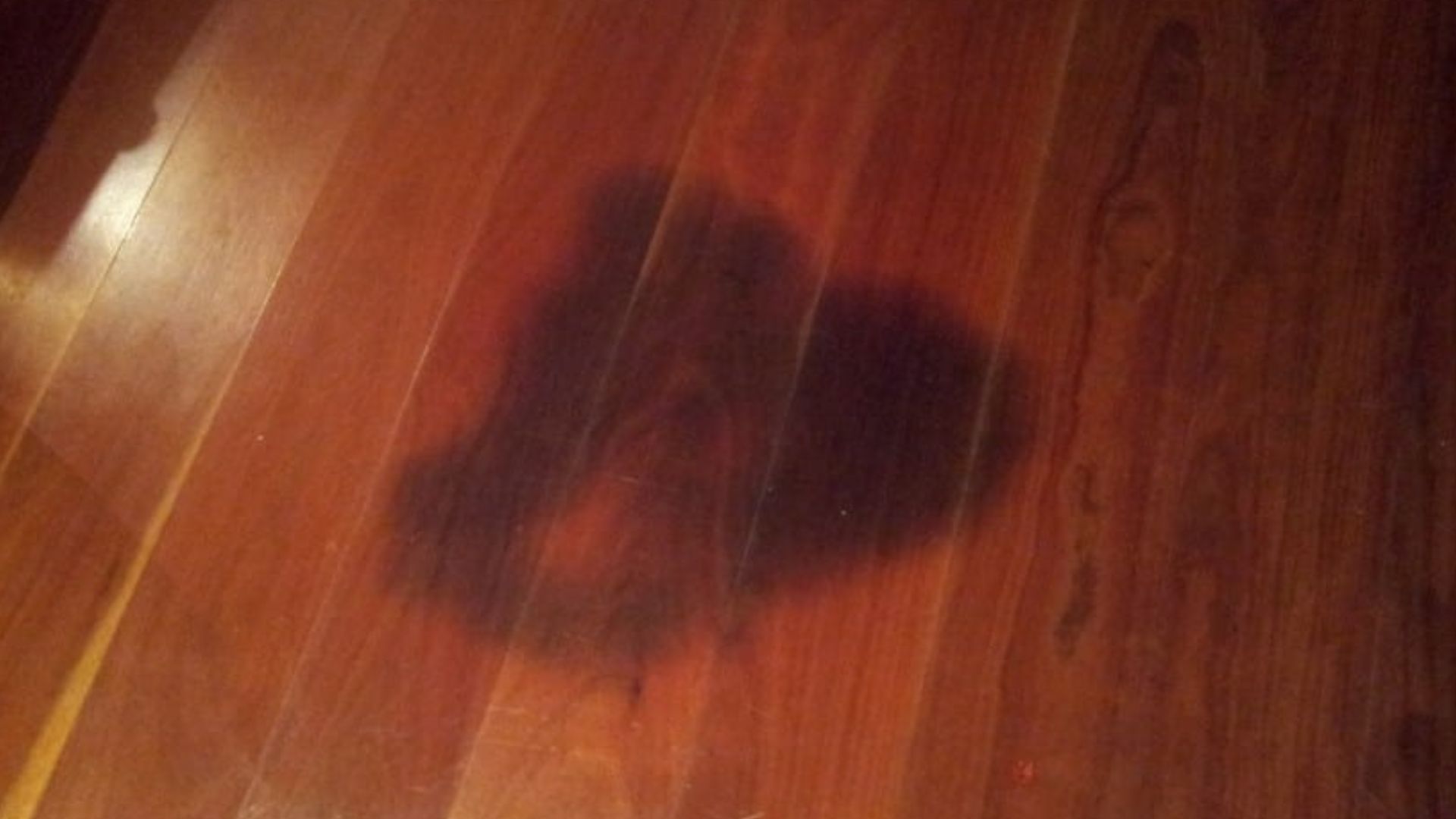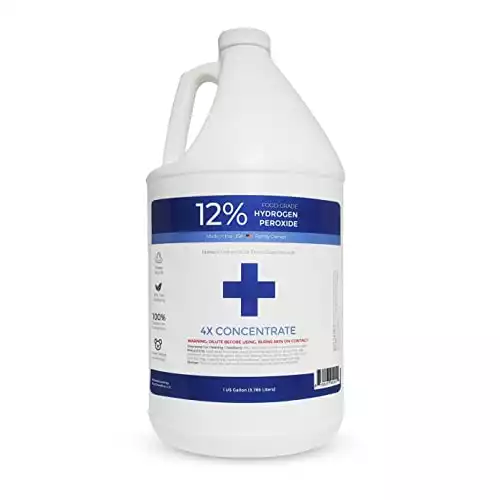Welcome to our comprehensive guide on how to remove old black urine stains from hardwood floors. If you’re a pet owner, you’re likely all too familiar with the challenge of keeping your hardwood floors clean. Pets, whether they’re dogs or cats, can sometimes have accidents, leaving behind unsightly and stubborn stains that can be difficult to remove. But don’t worry, we’ve got you covered.
In this guide, we’ll explore the best ways to tackle these tough pee stains and restore your hardwood floor to its former glory. We’ll delve into the science behind these stains, why they’re so hard to remove, and the best cleaning solutions to eliminate black urine stains effectively.
How to Remove Old Black Urine Stains from Hardwood Floors
Now that we understand the science behind these stains, let’s explore the different methods to remove black urine stains from hardwood floors.
Method 1: Using Hydrogen Peroxide and Water
Hydrogen peroxide is a powerful cleaning agent that can help remove stubborn stains. Here’s how to use it:
- Mix equal parts of hydrogen peroxide and water in a bowl.
- Soak a cloth in the solution and place it over the stained area.
- Let it sit on the stain for about an hour, then remove and wipe the area clean.
- Repeat the process if the stain is still visible.
Remember, hydrogen peroxide can bleach the wood, so it’s best to test this method on a hidden area of your floor first.
Method 2: Using Vinegar and Grapefruit Oil
White vinegar and grapefruit oil can also be effective in removing black urine stains from hardwood floors. Here’s how to use this cleaning solution:
- Mix one cup of white vinegar with ten drops of grapefruit oil.
- Apply the solution to the stained area using a soft cloth.
- Let it sit for a few minutes, then scrub the stain gently with a soft brush.
- Wipe the area clean and dry it thoroughly.
This method not only removes stains but also helps eliminate pet odors.
Method 3: Using Baking Soda and Vinegar
Baking soda and vinegar can work wonders on tough stains. Here’s how to use them:
- Sprinkle baking soda over the stained area.
- Spray white vinegar over the baking soda and let it fizz.
- Once the fizzing stops, scrub the stain gently with a soft brush.
- Wipe the area clean and dry it thoroughly.
This method is particularly effective for removing stains and odor.
Understanding the Impact of Urine Stains on Hardwood Floors
Before we delve deeper into the cleaning process, it’s crucial to understand the impact of urine stains on your hardwood floors. Over time, these stains can cause significant damage to your hardwood surfaces. The acidity in urine can corrode the finish on your hardwood floors, allowing the urine to penetrate deep into the wood. This can lead to discoloration, unpleasant smells, and even structural damage if left untreated.
The Role of Enzyme Cleaners in Removing Urine Stains
Enzyme cleaners are a popular choice when it comes to removing pet urine stains from hardwood floors. These cleaners contain enzymes that break down the uric acid crystals in urine, effectively eliminating both the stain and the odor.
To use an enzyme cleaner:
- Apply the enzyme cleaner to the stained surface.
- Let it sit for 15-20 minutes to allow the enzymes to work on the stain.
- Scrub the area gently with a soft brush.
- Wipe the area clean and dry it thoroughly.
Remember to always follow the instructions on the cleaner’s label for the best results.
Preventing Future Stains and Maintaining Your Hardwood Floors
Prevention is always better than cure. Here are some tips to prevent future stains and maintain your hardwood floors:
- Train your pets: Invest time in potty training your pets to prevent accidents. You can find various training resources at your local pet shops or online.
- Use pet litters: Pet litters are a great way to manage your pet’s waste. Ensure you have enough litter boxes if you have cats, and they are cleaned regularly.
- Regular cleaning: Clean your hardwood floors regularly to prevent any stains from setting in. Use a hardwood-friendly cleaner to keep your floors looking their best.
- Use protective mats: Place protective mats or rugs in areas where your pets spend most of their time. This can help protect your floors from potential accidents.
- Immediate action: If an accident happens, act quickly. The sooner you clean up the urine, the less likely it is to leave a stain.
Frequently Asked Questions
How do you get rid of dark urine stains?
Dark urine stains can be removed using a variety of methods, including hydrogen peroxide, vinegar and grapefruit oil, baking soda and vinegar, or commercial enzyme cleaners. Always remember to test any cleaning solution on a hidden area of your floor first to ensure it doesn’t discolor the wood.
Why is my hardwood floor turning black?
Hardwood floors can turn black due to moisture damage, mold growth, or chemical reactions with pet urine. If the black discoloration is widespread, it may be best to consult a professional for assessment and treatment.
What removes black marks from hardwood floors?
Black marks can often be removed using a mixture of vinegar and water, baking soda, or a commercial hardwood floor cleaner. For stubborn marks, a professional may need to sand and refinish the floor.
How do you remove black stains from wood?
Black stains can be removed from wood using a variety of methods, including hydrogen peroxide, vinegar and grapefruit oil, baking soda and vinegar, or commercial enzyme cleaners. For stubborn stains, wood bleach or professional refinishing may be necessary.
How do you remove deep urine stains?
Deep urine stains can be challenging to remove as they penetrate into the wood. Enzyme cleaners can be particularly effective as they break down the uric acid crystals in the urine, eliminating both the stain and the odor.
What is the best stain remover for old urine stains?
The best stain remover for old urine stains is often a commercial enzyme cleaner. These cleaners are designed to break down the uric acid crystals in urine, effectively removing the stain and odor.
Does hydrogen peroxide remove urine stains?
Yes, hydrogen peroxide can be effective in removing urine stains. However, it can also bleach the wood, so it’s best to test it on a hidden area of your floor first.
What is the best home remedy for urine stains?
Home remedies for urine stains include a mixture of vinegar and water, baking soda and vinegar, or hydrogen peroxide and water. These solutions can help to break down the stain and eliminate odors.
How do you get black out of hardwood floors?
Black stains on hardwood floors can often be removed using a mixture of vinegar and water, baking soda, or a commercial hardwood floor cleaner. For stubborn stains, wood bleach or professional refinishing may be necessary.
Why is my flooring turning black?
Flooring can turn black due to moisture damage, mold growth, or chemical reactions with substances like pet urine. If the black discoloration is widespread, it may be best to consult a professional for assessment and treatment.
Conclusion
Removing old black urine stains from hardwood floors can be a daunting task, but with the right methods and cleaning solutions, it’s entirely possible.
Remember, the key is to act quickly and clean regularly to prevent stains from setting in. With these tips and tricks, you can keep your hardwood floors looking their best and free from unsightly stains.




Leave a Reply